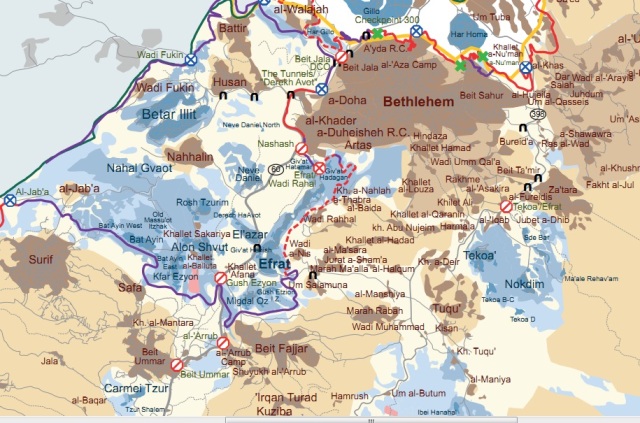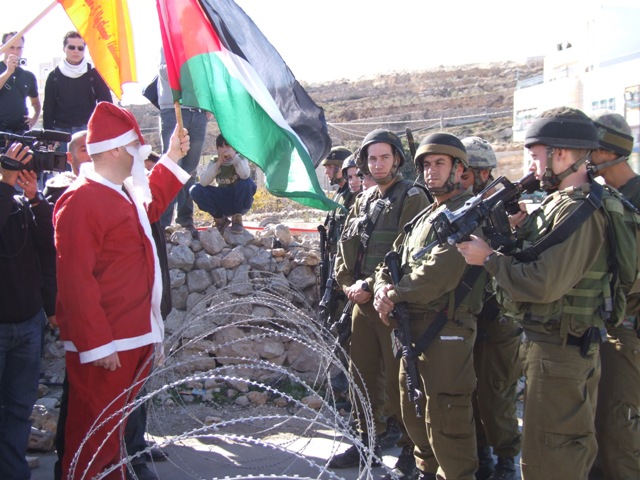Six months after the Ministry of Defense announced plans to resume construction of the fence in Gush Etzion, the IDF informed settler leaders that construction will not be resumed until the route is reevaluated by government.
The Gush Etzion settlement bloc just south of Bethlehem is the location of one of the biggest gaps in the wall in Israel-Palestine. Dozens of miles of the planned route of this project, launched ten years ago following the rise in suicide attacks in Israeli cities, remain unbuilt with construction at a full halt for nearly five years. The lack of construction is due to the pause in hostilities, insufficient funds, and a political clash between government aspirations of annexation, settler pressures against the “insufficient” annexation, and U.S. (and possibly High Court) resistance to the extreme route.

However, a couple of months ago, the Ministry of Defense announced that it would resume construction in both the significant gaps in the wall’s route: Gush Etzion, and Mishor Adumim (around the controversial E1 area and Ma’ale Adumim). Alongside Palestinian and international resistance to this route, deemed illegal by the International Court of Justice, construction plans also had settlers gathering their forces for a fight.
Gush Etzion settlers, led by head of their regional council, Davidi Pearl, petitioned, demonstrated and met with Prime Miniser Netanyahu, claiming that the current route would leave parts of the Gush outside the fence (including Nokdim, home of Foreign Minister Avigdor Lieberman). According to them, this would delegitimize their “inherent” belonging to Israel, damage local ecosystems, limit expansion of settlements, damper relations with local Palestinian villagers, and is generally no longer necessary as terror attacks in the West Bank have virtually stopped.
Last week the settlers’ pressure bore fruit. The right-wing oriented newspaper Makor Rishon and other settler media outlets report that Pearl received a letter from Major General Yair Nave, promising that construction will not resume before the entire route is reevaluated by the government. The announcement comes after two weeks of intensive military presence on the planned route, reported by Palestinian residents of the area, who themselves have been demonstrating for more than six years now against the annexing fence. “We know that the threat has not been fully lifted, but for the time being we have successfully led to a halt,” Pearl told Makor Rishon. “When a new government is sworn in we will bring the matter to them and resume handling of the situation.”
Read also:


